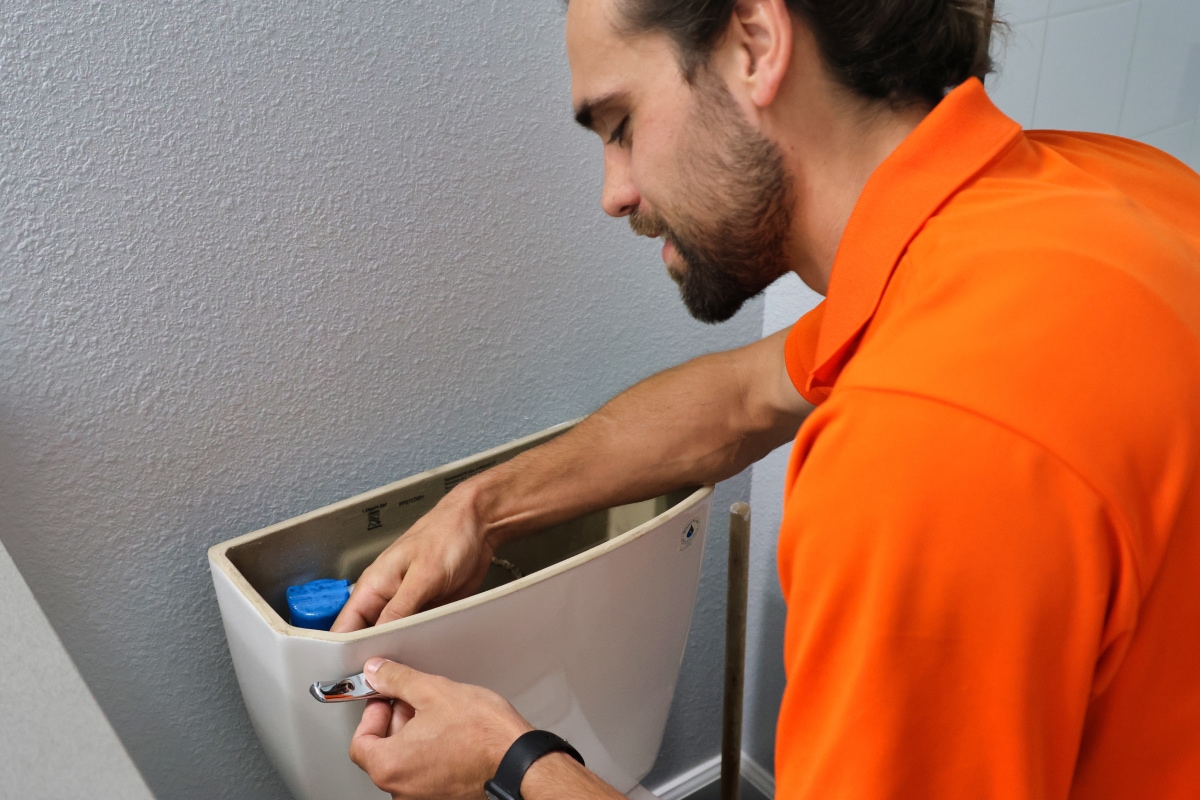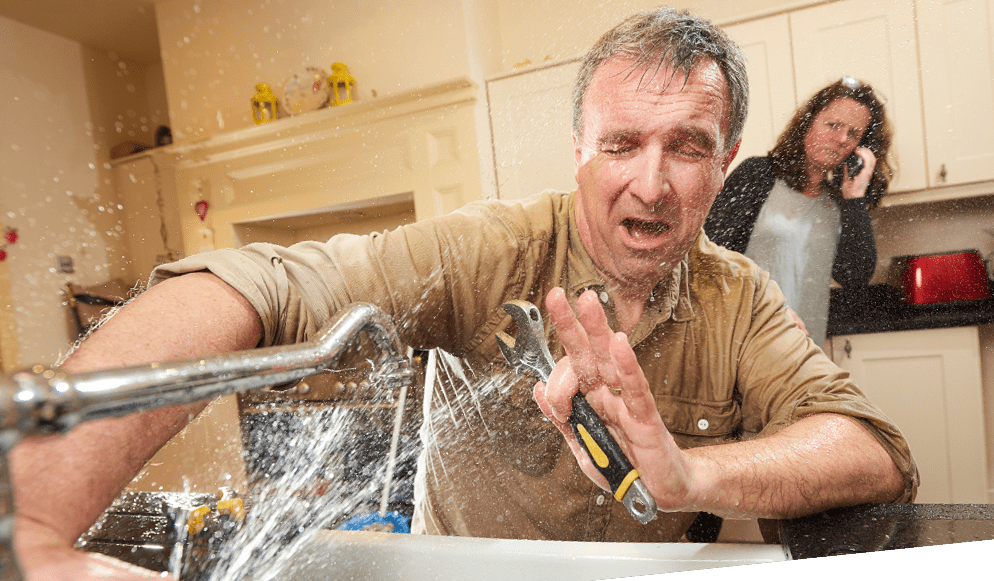Everybody will have their unique conception involving Expert Tips for Managing a Plumbing Emergency Until Help Arrives.

Pipes emergencies can strike at any moment, creating stress and potential damage to your home. Whether it's a ruptured pipeline, a clogged drain, or a leaking tap, recognizing just how to manage the situation up until an expert plumbing professional arrives can save you from additional issues. This post supplies essential emergency pipes pointers to help you alleviate damages and regain control during a pipes situation.
Turn Off the Water System
The very first step in any plumbing emergency situation is to shut down the water supply. For localized problems, such as a dripping tap or toilet, turn off the valve near the component. When it comes to a significant leak or burst pipe, find your home's primary water shut-off shutoff and transform it off immediately. Understanding the place of these shutoffs ahead of time can conserve valuable time during an emergency.
Turn off Your Water Heater
In certain emergencies, such as a ruptured pipeline, it's smart to turn off your water heater. This prevents overheating or damages to the device when water quits streaming. Turn off the power supply to the water heater (electrical or gas) and allow it cool off to prevent potential hazards.
Momentarily Quit a Burst Pipe
A ruptured pipeline can cause significant water damage in mins. To alleviate the problem:
Call a specialist plumbing technician right away to address the trouble permanently.
Have an Emergency Pipes Kit
Prepare a standard plumbing emergency set to handle small problems effectively. Your set should consist of:
Having these tools handy can make a significant distinction in your ability to handle emergencies.
Unclog Drains Pipes Safely.
A stopped up drain can be a discouraging and messy problem. Below's exactly how to tackle it:.
If these techniques do not work, stay clear of utilizing too much force, as it might worsen the obstruction.
Take Care Of Overflowing Toilets.
An overflowing commode can cause immediate turmoil. Below's what you need to do:.
Address Little Leakages with Momentary Repairs.
Tiny leakages can swiftly come to be substantial troubles if left uncontrolled. Make use of these short-lived solutions till specialist assistance shows up:.
While these repairs aren't long-term, they can help minimize water loss and damages.
Take Care Of Frozen Water Lines Very Carefully.
In chillier climates, icy pipelines are a typical emergency. If you suspect an icy pipeline:.
Know When to Call a Specialist.
While quick fixes can assist temporarily, particular plumbing concerns need immediate specialist interest. Call a plumber if:.
Immediately getting in touch with a specialist guarantees the issue is solved correctly and stops further issues.
Prevent Additional Damage.
Taking quick activity to reduce damages can save you time and money in the future. Here's exactly how:.
Conclusion.
Pipes emergency situations can be overwhelming, however with the ideal expertise and tools, you can handle the scenario properly until assistance shows up. By switching off the water supply, dealing with small leaks, and using short-term fixes, you can reduce damage and keep your home safe. Remember, these tips are temporary solutions; constantly get in touch with a qualified plumbing professional to take care of the origin of the issue. Preparation and quick thinking are your best allies in any kind of pipes emergency situation.
8 Helpful Tips for Managing Plumbing Emergencies at Home
If your plumbing system hasn’t failed once, wait for it because almost everyone has a story to tell. Sometimes, it could be simple emergencies such as a leaking pipe, a blocked cistern, or even a big burst pipe. In situations like this, you need to have some handy tips to save you some money and from possible damages.
Take care of minor issues early.
Sometimes, you could have avoided an emergency by taking proactive measures while it was still early. Some major plumbing emergencies can be a result of an ignored minor issue. We recommend that you have items like plumbing tapes and other related items. A plumbing tape can allow you to manage minor leaks before the plumber arrives.
Cut off the water supply.
This tip is essential in almost any type of leakage problem. For problems like minor leakages in the toilet or kitchen, turn off the supply that takes water to the affected pipes. If the leakage is a major pipe, you must shut off the supply valve to the entire building. This will help you avoid flooding your home and neighbors if you share a flat.
Know your plumbing system
Folks typically move into a new apartment without understanding the water supply around the building. This can prove disastrous if a water emergency arises and the plumber is far away. The previous tip will prove useless if you don’t practice this one. More importantly, know where your water shut-off valve is located – you’ll need that knowledge to prevent potential home floods.
Have some common handy tools
There are lots of plumbing emergencies that you can handle without hiring a plumber. That’s why you must keep some tools available always. Some tools that you can use to fix simple plumbing emergencies easily include plumbing tapes, screwdrivers, thread seal tapes, plungers, pliers, tape measures, and rubber gloves.
Insulate your pipes from cold
You’ll save yourself from many plumbing expenses if you protect your water pipes from the cold. This is because of the harmful effects that cold weather can have on your pipes. During winter, your pipes can burst from being overly expected to freezing temperatures. So, make sure insulators are there to keep the pipes working correctly.
Avoid practices that will clog your toilet.
Many people indulge in practices that can damage the plumbing system of the entire building. One of these is when they use their toilet to dispose-off garbage. They flush all kinds of things, such as paper towels, bandages, hairs, female sanitary products, etc., down the toilet. This will block your toilet in the long run, incurring unnecessary expenditures. Dump such waste in the trash instead.
Check your dials regularly.
Sometimes, there could be leakages in your home without noticing them in time. So, constantly monitor your water meter dial. If the dial is reading when there is nobody using water, this is an indicator that there is leaking. Check for leaks immediately. Call a plumber as soon as possible if you can’t find any.
https://www.constructionplacements.com/8-helpful-tips-for-managing-plumbing-emergencies-at-home/

We are very focused on and I hope you enjoyed my blog entry. Are you aware of somebody else who is serious about the niche? Do not hesitate to promote it. Thanks a lot for your time. Please stop by our website back soon.
Click Here